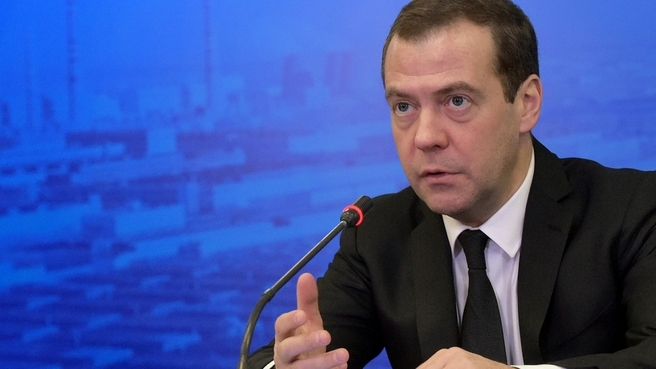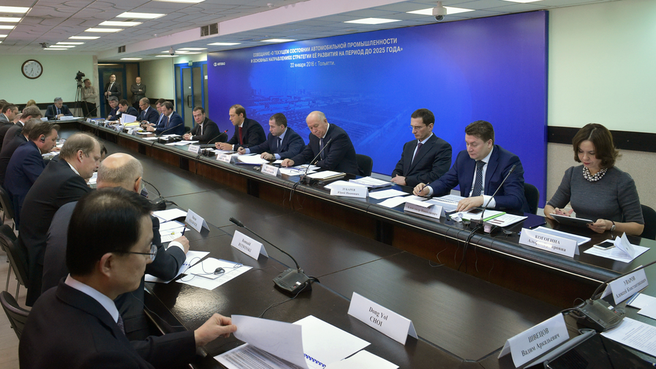Dmitry Medvedev: "The Government resolution on the automotive industry support programme for 2016 has been signed. The programme aims at providing the basis for the resumption of growth of Russian carmakers. The total volume of financing will reach 50 billion roubles."
Excerpt from Dmitry Medvedev's opening remarks:
We need to discuss measures to support the automotive industry and determine the main development strategies until 2025.
We took certain decisions last year. The industry had posted fast development rates before the crisis. The industrial assembly policy had translated into virtually a 180-billion-rouble investment into Russia's economy and 25,000 new jobs. Manufacturers of car parts and components had contributed another 45 billion roubles of investment.
The Russian automobile market had become Europe's fifth largest behind Germany, the UK, Italy and France, with the majority, or around 80 percent, of cars produced in Russia.
Dmitry Medvedev: "In 2015, the automotive industry received 43 billion roubles in state support. The programmes stimulating demand, which involved updating the car fleet and reducing car credit and rental rates, had a positive effect. Out of over 1.5 million new cars purchased last year, over a third were purchased at a special reduced rate."
The market is still in the negative territory today for well-known reasons. Sales of all types of cars fell by nearly a third last year compared to 2014. Still, we managed to prevent production freezes and mass layouts. To a great degree, this was achieved thanks to Government measures.
In 2015, the automotive industry received 43 billion roubles in state support. The programmes stimulating demand, which involved updating the car fleet and reducing car credit and rental rates, had a positive effect. Out of over 1.5 million new cars purchased last year, over a third were purchased at a special reduced rate. We will continue this policy this year.
According to current estimates, the market will not post a significant growth in the near future. Both the rouble rate and the rising price of car parts don't play in its favour.
We must urgently organise our efforts on replacing the imports of car parts. We must ensure we have our own domestic chain of production from raw materials to the final product; create a list of car parts to start their production in our country; lay the foundations for the design of promising materials and parts. This is one of our key goals.
We must be more careful in the evaluation of our export opportunities and promote our companies and brands on foreign markets. It is the global market presence that enables a national automotive industry to continue its steady development both today and in the long term.
The Government resolution on the automotive industry support programme for 2016 has been signed. The industry will receive more in subsidies than any other civilian industry. The programme aims at providing the basis for the resumption of growth of Russian carmakers. The total volume of financing will reach 50 billion roubles. In real figures, it equals the 2015 support package volume.
We will continue the implementation of the principal measures of 2015. The vehicle fleet update programme is the main item on that list. Reduced car credit and rental rates programmes will also remain. Russian companies will receive financial support on their investment credits. The state will also allocate funds to regional authorities to purchase municipal service vehicles running on natural gas, and to purchase buses and trolleybuses. It will continue its large-scale programme to protect efficient jobs and to ease the transition to the production of vehicles of higher euro emission standards.
Dmitry Medvedev: "The Government resolution on the automotive industry support programme for 2016 has been signed. The programme aims at providing the basis for the resumption of growth of Russian carmakers. The total volume of financing will reach 50 billion roubles."
We will also launch two new projects. Under the first one, the state will support exports of Russian cars and car parts by compensating a part of transport costs and expenses arising from the need to make Russian products conform to consumer standards. The second project will see a new stage of updating ambulances and emergency care vehicles. The federal budget will cover these costs.








